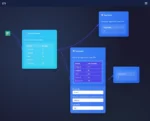Data engineering is no longer just a support function—today, it’s a strategic cornerstone that powers innovative insights and drives business growth. However, constructing a successful data engineering career path takes more than just coding skills or academic knowledge—it calls for a blend of technical mastery, strategic thinking, and a relentless commitment to solving complex data challenges. Whether you’re an aspiring data engineer or a decision-maker looking to foster data skills within your organization, understanding the essential skills, common pitfalls, and clear strategies for progression can position you at the forefront of the data-driven revolution. This article outlines precisely how you can build a robust and rewarding career path in data engineering, equipping yourself or your team with the expertise necessary to harness crucial data opportunities effectively.
The Foundation of Data Engineering: Essential Technical Skills
The journey into data engineering begins with a strong foundation in critical technical skills. These go beyond writing code alone—they encompass managing and optimizing databases, leveraging cloud infrastructures, and understanding the nuances of data architectures. At minimum, proficiency in SQL is mandatory to manage and manipulate massive datasets effectively. Knowledge of database management systems, including MySQL, PostgreSQL, or NoSQL databases, is equally crucial. Mistakes in data handling early in a career journey can significantly disrupt later stages of project implementation; thus, understanding best practices from the beginning is essential.
In addition to databases, big data and cloud computing expertise play an increasingly central role as companies migrate to scalable and resilient cloud solutions. Familiarity with platforms like Amazon Web Services, Azure, and Google Cloud adds considerable value. Experience managing real-time data pipelines with Kafka, RabbitMQ, or Apache Hadoop ecosystems provides a competitive edge. Competency in programming languages such as Python and Java ensures versatility in developing applications, automating tasks, and facilitating real-time analytics. For instance, being capable of performing tasks like securely resetting MySQL root password on critical systems demonstrates advanced DBMS knowledge & problem-solving instincts—two skills critical to any prospective data engineer.
Moreover, proficiency in data visualization tools such as Tableau can significantly enhance the ability to communicate insights effectively. Specialized competencies, like Advanced Tableau Consulting Services, allow engineers to meet strategic visualization needs and strengthen partnerships across business units.
Mastery of Data Analytics Techniques: Understanding Your Data
While hands-on skills form the technical foundation, a skilled data engineer also benefits immensely from understanding various analytics techniques. This familiarity enables clear communication with analysts and data scientists, facilitating cohesive collaboration across your team. Mastery of types of data analytics—covering descriptive, diagnostic, predictive, and prescriptive approaches—is crucial. Understanding these analytics types equips you with the knowledge to structure your data pipelines optimally, supporting advanced analytics uses from routine reports to machine learning models.
Data engineers who successfully embrace analytics distinguish themselves by building systems that support real-time decision-making—such as integrating webhooks for real-time fraud detection. By staying current with emerging analytics techniques and actively collaborating with analysts, data engineers can ensure their data infrastructures accommodate complexity, scalability, and dynamic flexibility to anticipate shifting analytical goals. This ultimately converts raw data into coherent, actionable insights, fueling strategic data-driven approaches that accelerate business innovation.
Spotting and Removing Data Silos: Boosting Efficiency and Collaboration
A strong data engineering career path offers more than just technical capability—it demands strategic understanding and the ability to identify organizational inefficiencies. One of the most common yet challenging inefficiencies encountered in modern enterprises is data silos. The adverse impacts of silos extend far beyond mere data redundancy, affecting organizational agility, analytical speed, quality assurance, and informed decision-making. Knowing how to spot data silos quickly and propose integrated data solutions exemplifies strategic vision in a data engineer’s profile.
To dismantle data silos effectively requires keen problem-solving skills and cohesive teamwork. Data engineers should advocate for centralized, governed data environments, leveraging cloud-based solutions and platforms that promote interoperability, data cleanliness, and robust governance practices. Engineering teams that can proactively identify key indicators of risks related to data isolation can rapidly provide organizations the agility and transparency essential in today’s competitive landscape. For growing professionals, taking initiative to resolve these roadblocks positions them not merely as technicians, but trusted advisors strategically guiding business growth and innovation.
Balancing Technical Expertise with Strategic Decision Making
Every data engineering career progresses through an evolution from purely technical roles towards more strategic-oriented responsibilities. Knowing not only how to code effective data pipelines, but also determining when certain features or tools should be declined, demonstrates maturity in understanding business requirements appreciably deeper than functional capabilities. Understanding when to say no to software features, for example, builds trust across organizational teams and ensures engineering efforts align strategically towards meaningful business objectives rather than superficial enhancements.
For aspiring senior professionals, the intersection of technological utility and business value remains essential. Decision-making acumen involves evaluating how new data technologies affect strategic objectives, quality of operations, and cost-benefit analyses of complex choices. Skills such as strategic foresight, stakeholder communication, and change management complement technical expertise—thus ensuring engineers do not operate in isolated tech stacks but are responsible stewards aligned to organizational goals. Wise engineering leaders consistently advocate eliminating non-essential tasks, enabling teams to maintain focus and resilience under pressure—further demonstrating strategic thinking and commanding responsibility.
Continuous Learning and Professional Growth: Staying Relevant in a Rapidly Changing Field
The ultimate hallmark of a successful data engineering career trajectory lies in continuous learning. Data engineering, much like other tech careers, evolves incredibly fast. Rapid technological improvements mean engineers must constantly refine skills and remain adaptable, from mastering new languages to latest big data architectures and cloud technologies. For example, storing images more effectively can significantly bolster dashboard performance, making knowledge like how to optimize images in Tableau Desktop uniquely valuable in certain data visualization projects.
While traditional learning pathways such as academia, certifications, or boot camps help establish foundational skills, tools, and theory—the applied experience from real-world projects provides highly specialized expertise. Hands-on projects, like removing image watermarks programmatically using Python scripts, such as explained in this Python image processing guide, provide rapid skill acquisition, enhancing problem-solving and creativity. Leveraging a combination of formal education, self-directed study, industry certifications, and impactful side projects ensures growth, empowering continuous evolution in an industry where relevancy and competitiveness are paramount.
Conclusion: Shaping a Rewarding Data Engineering Career Path
Building a data engineering career path demands a strategic balance of essential technical skills, analytical understanding, strategic awareness, problem-solving, and continuous professional growth. As organizations increasingly recognize data as a critical strategic asset, engineers with this combined skill set are positioned not only to influence technological choices but also to shape innovative business decisions fundamentally. By proactively mastering core technical skills, eliminating silos, strategically managing features & decisions, and embracing lifelong learning, you replace uncertainty with confidence—transforming your data engineering journey into a fulfilling and sought-after career.

























